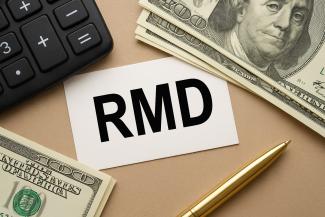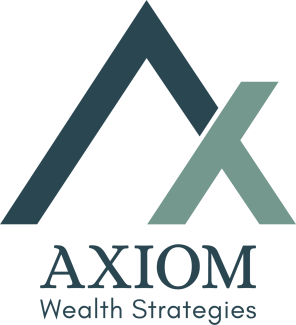
RMDs Demystified: What You Need to Know
Required Minimum Distributions (RMDs) are a key part of retirement income planning. While they may seem straightforward at first glance, the rules can get complex depending on the types of accounts you own and how you wish to manage your distributions. Below are some of the most important considerations to keep in mind to keep your RMDs aligned with your goals and values.
1. Beginning Age and Timing
RMDs are required to start at age 73. For your very first RMD, you have the option to delay taking it until April 1st of the following year. However, this choice means you would need to take two RMDs in that same year (one for the previous year and one for the current year) which can increase your taxable income.
2. Aggregation Rules
Aggregation means combining the RMDs you need to take on individual accounts into a joint total. Not all retirement accounts follow the same RMD rules:
- IRAs: You can calculate your RMD across all of your IRAs and take the total from one or multiple accounts, even if they are with different custodians (the firm holding your funds).
- Beneficiary IRAs: These cannot be aggregated; the RMD must be withdrawn from each inherited account separately.
- Employer Plans (401(k), 403(b), etc.): Each plan has its own required distribution; you cannot combine them with IRA withdrawals. You can, however, if you choose, roll these plans into your IRA to consolidate and simplify.
3. Best Practices for Rollovers
You have a choice when rolling over whether to take the RMD first and then transfer your account or wait until the transfer is completed before taking your RMD. This may depend on the current custodian and what they require during the transfer process. At Axiom, we prefer to accept the transfer and then process the RMD so that we ensure the correct amount is taken and our client is up to date.
4. How RMDs Are Calculated
Each year, your RMD is calculated based on your account balance as of December 31st of the prior year, using IRS life expectancy tables for your current age. Because account values fluctuate, and as you age, your RMD amount will change from year to year. A great way to ensure your RMD is withdrawn correctly every year is to set up RMD service through your firm with periodic or annual withdrawals set.
5. Gifting and Conversions
RMDs can interact with charitable giving and Roth strategies in unique ways:
- Qualified Charitable Distributions (QCDs): If you want to give to charity directly from your IRA, a QCD can count toward your RMD if done properly. However, gifts to children or transferring funds to charity outside of this process do not count.
- Roth Conversions: Converting funds from a traditional IRA to a Roth IRA does not count toward satisfying your RMD. You must first take your RMD before doing a conversion.
6. Special Rules for Spousal Beneficiaries
If a surviving spouse inherits an IRA, they have the option to roll the account into their own IRA, which allows them to delay or manage RMDs based on their own age. This can provide significant flexibility compared to other types of beneficiaries. There may be special instances where you would want to transfer an IRA from a deceased spouse to a beneficiary IRA instead; please consult with a licensed advisor on your specific situation.
7. Longevity Annuities for Later Years
For retirees in their 90s and beyond, RMDs can grow to become a very large percentage of retirement savings. One planning strategy to help manage this is the use of a Qualified Longevity Annuity Contract (QLAC). This type of annuity allows part of your retirement account to be excluded from RMD calculations, helping spread income more evenly over a longer retirement.
Final Thoughts
RMDs are more than just a required withdrawal—they’re a planning opportunity. Coordinating RMDs with your tax strategy, charitable goals, and long-term retirement needs can make a meaningful difference in your financial plan. At Axiom Wealth Strategies, we listen to what’s important to our clients so we can navigate these rules together, whether it’s meeting daily needs or building a legacy. Contact us if you’d like to learn more about how we can help!
Schedule a 15 minute phone call with Grant Finter in Bend, OR

